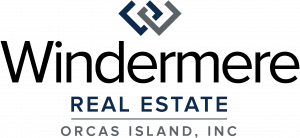Mortgage Financing – How Much Can I Afford?

[Illustration by Eric Lebofsky]
Curbed University delivers insider tips and non-boring advice on how to buy, sell, or rent a house or apartment. Additional questions welcomed toseattle@curbed.com. Today, Residential Mortgage Advisor Dan Keller walks us through the process of determining how much you can afford when it comes to mortgage financing.
“How much can I afford” is one of the most common questions that home buyers ask. I look at the affordability process a little different than some mortgage brokers that simply use an online affordability calculator. I prefer the long-hand approach and start with one main question:
“How much do you WANT to afford?” Meaning, what level of mortgage payment are you comfortable making each month?
I start with evaluating the borrower’s current rent, income, debt and lifestyle, and then from there, establish affordability ranges. This approach leads to a lower default rate in my office and helps prepare the borrower for the responsibilities of home ownership, while at the same time, using their mortgage as a financial tool.
.
So What’s Next?
After an initial mortgage budget is determined, I like to find out how much money the borrower plans to use for a down payment. At this point, I am now ready to solve for a sales price and present mortgage options through a mortgage planning analysis (see the video below for an example of a mortgage planning analysis by Dan Keller).
Determining the Best Loan Program – After reviewing the mortgage planning analysis, you should have total clarity in regards to how much money is required for your down payment, what your total monthly payment will be, the closing costs associated with the loan, as well as the details surrounding the loan program such as the Private Mortgage requirements and qualifying guidelines.
.
.
Qualifying For the Mortgage Program You Select
Over the years, I’ve documented exactly what it takes to Ace Your Mortgage Application, and in my office, we call it the Perfect Mortgage Approval Process. If you follow the information below, should breeze through the mortgage process and right into your new home!Know Your Credit Score – Most banks today require a 640 credit score to qualify for a home loan. Our bank for example, will go as low as 620, and will make case-by-case exceptions down to 580. It’s important to understand that the interest rate you get is directly related to your credit score. If you have missed the mark on your credit score, I highly recommend getting started with a credit restoration program (I can refer you to a company that I use).
Documenting Your Employment History – As a first time home buyer, your approval will be based on your ability to prove your employment history. Banks require a 2-year consistent work history. If there are gaps in employment, they will need to be addressed and supported. In most cases, a bank will need to see that you have been back to work for 6-months to date. Another common question asked pertains to job transfers. It’s ok to transfer employers, in that case, you will need to provide a job offering letter, written verification of employment and in most cases, at least one pay stub helps.
Supporting Your Income – This is where most trains get derailed in the mortgage approval process. Just because you “made” $82,000 last year per your tax returns, doesn’t mean that your qualifying income is $82,000. Overtime, bonuses, and write-offs are all factored into the qualifying income matrix. In my office, we order a written verification of employment as we review your tax returns and pay stubs upfront so that we are 100% correct in determining your qualifying income. I like to say, “We think like underwriters”.
Verifying Your Down Payment – This is a process of reviewing your bank statements, 401k accounts, or any investment accounts that may be leveraged to provide down payment funds. In many cases, Gift Funds are allowed for a down payment, however, you need to understand how to properly source your gift funds when applying for a mortgage.
Choosing the Right Real Estate Agent – Now you are ready to purchase! It’s crucial, now that you’ve done everything that you need to do in getting your financing in order, you need to find the right agent that is qualified to serve you and your home buying needs. I recommend a couple of things in selecting a real estate agent in your community:
(1) Go to Google and search. Get detailed in your search – “Wallingford Seattle Real Estate Agents” or if you are looking at specific homes, I’d search, “Craftsman Homes for Sale in Wallingford Seattle”. You have a better chance of selecting a specialist versus a “jack of all trades” real estate agent.
(2) Visit open houses. This is a no-obligation opportunity to interview agents. Plus – if you were to sale your home some day, you’d want an agent that has a listing inventory and actually works their open houses.
.
The Secret Sauce – Know Before You Owe
Everything that you need to know about getting approved for a mortgage and buying a home can be found right here in our Mortgage Concierge Packet. Also – you can visit my Perfect Mortgage Approval Process and preview a 4-part short video series on How To Ace Your Mortgage Application.
As always, I love helping my readers, so please do not hesitate to contact me directly at (425) 350-7136 if you have any questions!
One last thing, if you liked this video and post, please feel free to share it for me. Thank you!

 Facebook
Facebook
 X
X
 Pinterest
Pinterest
 Copy Link
Copy Link
